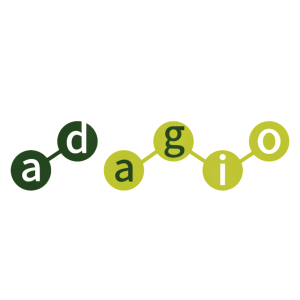Invivyd and Leading Researchers Form SPEAR (Spike Protein Elimination and Recovery) Study Group to Assess the Effects of Monoclonal Antibody Therapy for Long COVID and COVID-19 Post-Vaccination Syndrome
Rhea-AI Summary
Invivyd (NASDAQ:IVVD) has established the SPEAR Study Group, a collaborative research initiative focused on investigating monoclonal antibody therapy for Long COVID and COVID-19 Post-Vaccination Syndrome (PVS). The group was formed following multiple reports of clinical benefits from PEMGARDA® (pemivibart) in Long COVID patients.
The initiative brings together leading researchers including Drs. Michael Peluso, Amy Proal, and David Putrino to conduct rigorous clinical trials evaluating anti-SARS-CoV-2 spike protein monoclonal antibody therapy. The research aims to address conditions believed to be caused by persistent viral reservoirs or circulating spike protein, affecting approximately 5% of Americans.
While PEMGARDA is currently only FDA-authorized for COVID-19 prevention in immunocompromised individuals, the SPEAR Study Group will investigate its potential therapeutic applications for Long COVID, including the use of next-generation candidates like VYD2311.
Positive
- Formation of expert-led research group to investigate potential Long COVID treatments
- Multiple independent reports suggest clinical benefits of PEMGARDA for Long COVID patients
- Company plans to meet with FDA in Q3 to discuss rapid approval pathways for COVID-19 mAbs
- Research targets a significant market with 5% of Americans reporting Long COVID symptoms
Negative
- PEMGARDA is not currently authorized for Long COVID treatment
- Current evidence of benefits is only anecdotal and uncontrolled
- Significant clinical trials and regulatory approvals still needed before potential commercialization
News Market Reaction
On the day this news was published, IVVD gained 0.25%, reflecting a mild positive market reaction.
Data tracked by StockTitan Argus on the day of publication.
- SPEAR Study Group initiated following multiple, independent reports of substantial clinical benefit associated with PEMGARDA® (pemivibart) therapy among people with Long COVID
- SPEAR Study Group collaborators Drs. Michael Peluso, Amy Proal, and David Putrino are key thought leaders in the clinical and translational biology of Long COVID and Post-Vaccination Syndrome
- Initial SPEAR clinical efforts to be aimed at rigorous, controlled assessment of monoclonal antibody safety, translational biology, and exploratory efficacy in relevant patient populations characterized by persistent virus or circulating SARS-CoV-2 spike protein
WALTHAM, Mass., July 02, 2025 (GLOBE NEWSWIRE) -- Invivyd, Inc. (Nasdaq: IVVD), today announced that it has formed a best-in-class clinical and translational study group, the SPEAR Study Group, with leading investigators focused on the biology and clinical disease or injury associated with chronic exposure to SARS-CoV-2 virus or mRNA vaccine-mediated spike protein. The SPEAR Study Group will structure and guide anticipated clinical trials evaluating the effects of broadly neutralizing anti-SARS-CoV-2 spike protein monoclonal antibody (mAb) therapy in people suffering from Long COVID or Post-Vaccination Syndrome (PVS), conditions believed to be mediated by persistent viral reservoirs or circulating spike protein. Persistent SARS-CoV-2 spike protein has been identified in both populations, and both populations have overlapping manifestations of apparent clinical disease. As many as
The SPEAR Study Group was initiated in response to a growing number of case reports and reported case series from across the U.S. suggesting meaningful symptom relief / remission of Long COVID following use of PEMGARDA® (pemivibart), a monoclonal antibody currently authorized by the U.S. Food and Drug Administration (FDA) for the pre-exposure prophylaxis (prevention) of COVID-19 in certain immunocompromised individuals. PEMGARDA is not authorized for the treatment of Long COVID. While these emerging reports are anecdotal and uncontrolled, they collectively support a longstanding, mechanistically plausible hypothesis: that prolonged exposure to pathogenic SARS-CoV-2 spike protein or other forms of persistent virus or viral material may drive disease in some patients, and that reducing this burden through monoclonal antibody therapy may offer a promising therapeutic approach worthy of rigorous clinical investigation. Clinical research to be planned by the SPEAR Study Group is critical to exploring disease biology and evaluating efficacy endpoints that can enable registrational studies if appropriate in the future.
The SPEAR Study Group includes the following investigators and researchers who, along with Invivyd, will collaborate on the design and anticipated execution of relevant clinical trials:
- Michael Peluso, M.D., MHS, Assistant Professor of Medicine, Division of HIV, Infectious Diseases, and Global Medicine, University of California, San Francisco
- Amy Proal, Ph.D., Co-Founder and CEO, Polybio Research Foundation and Scientific Director, Mount Sinai Cohen Center for Recovery from Complex Chronic Diseases (“CoRE”)
- David Putrino, Ph.D., Nash Family Director of the Mount Sinai Cohen Center for Recovery from Complex Chronic Diseases (“CoRE”) and Professor, Department of Rehabilitation and Human Performance, Icahn School of Medicine at Mount Sinai.
The SPEAR Study Group intends to launch collaborative, multi-center translational clinical research on Long COVID, including PVS, as soon as practicable, including use of next-generation monoclonal antibody candidates from Invivyd such as VYD2311.
“It is now clear from a growing body of high-quality, peer-reviewed research that persistent spike protein or viral reservoirs can be identified in a meaningful portion of people with Long COVID,” said Dr. Peluso. “For the first time in years, there is a company with the capability to explore this space using active, broadly neutralizing monoclonal antibodies. This research marks an essential step toward understanding what may cause debilitating COVID-driven chronic disease, and we hope will lay the groundwork for future efficacy studies that could deliver real therapeutic options to patients who have waited far too long.”
“Long COVID is a pervasive, debilitating, and underappreciated public health challenge affecting millions of adults and children in the U.S., with no approved treatments,” said Marc Elia, Chairman of the Board at Invivyd. “Monoclonal antibodies have already demonstrated efficacy in preventing acute COVID-19 infections and treating acute COVID-19 infections, including long-term infections, and emerging anecdotal reports suggest pemivibart may have potential in addressing symptoms in some Long COVID patients. We believe that monoclonal antibodies are key to managing the ongoing burden of endemic COVID-19 disease in all forms, and as previously disclosed, we will be meeting with the FDA early in 3Q to discuss rapid approval pathways for COVID-19 mAbs. Meanwhile, our formation of the SPEAR Study Group is a critical step toward potentially unlocking a Long COVID treatment opportunity for patients in need by generating data needed to inform future studies and potential regulatory pathways. We look forward to sharing future milestones as we advance this important initiative.”
About PEMGARDA
PEMGARDA® (pemivibart) is a half-life extended investigational monoclonal antibody (mAb). PEMGARDA was engineered from adintrevimab, Invivyd’s investigational mAb that has a robust safety data package and provided evidence of clinical efficacy in global Phase 2/3 clinical trials for the prevention and treatment of COVID-19. PEMGARDA has demonstrated in vitro neutralizing activity against major SARS-CoV-2 variants, including JN.1, KP.3.1.1, XEC and LP.8.1. PEMGARDA targets the SARS-CoV-2 spike protein receptor binding domain (RBD), thereby inhibiting virus attachment to the human ACE2 receptor on host cells.
PEMGARDA (pemivibart) injection (4500 mg), for intravenous use is an investigational mAb that has not been approved, but has been authorized for emergency use by the U.S. FDA under an EUA for the pre-exposure prophylaxis (prevention) of COVID-19 in adults and adolescents (12 years of age and older weighing at least 40 kg) who have moderate-to-severe immune compromise due to certain medical conditions or receipt of certain immunosuppressive medications or treatments and are unlikely to mount an adequate immune response to COVID-19 vaccination. Recipients should not be currently infected with or have had a known recent exposure to an individual infected with SARS-CoV-2.
PEMGARDA is not authorized for use for treatment of COVID-19, treatment of Long COVID, or post-exposure prophylaxis of COVID-19. Pre-exposure prophylaxis with PEMGARDA is not a substitute for vaccination in individuals for whom COVID-19 vaccination is recommended. Individuals for whom COVID-19 vaccination is recommended, including individuals with moderate-to-severe immune compromise who may derive benefit from COVID-19 vaccinations, should receive COVID-19 vaccination. In individuals who have recently received a COVID-19 vaccine, PEMGARDA should be administered at least 2 weeks after vaccination.
Anaphylaxis has been observed with PEMGARDA and the PEMGARDA Fact Sheet for Healthcare Providers includes a boxed warning for anaphylaxis. The most common adverse reactions included systemic infusion-related reactions and hypersensitivity reactions, local infusion site reactions, and infusion site infiltration or extravasation. For additional information, please see the PEMGARDA full product Fact Sheet for Healthcare Providers, including important safety information and boxed warning.
To support the EUA for PEMGARDA, an immunobridging approach was used to determine if PEMGARDA may be effective for pre-exposure prophylaxis of COVID-19. Immunobridging is based on the serum virus neutralizing titer-efficacy relationships identified with other neutralizing human mAbs against SARS-CoV-2. This includes adintrevimab, the parent mAb of pemivibart, and other mAbs that were previously authorized for EUA. There are limitations of the data supporting the benefits of PEMGARDA. Evidence of clinical efficacy for other neutralizing human mAbs against SARS-CoV-2 was based on different populations and SARS-CoV-2 variants that are no longer circulating. Further, the variability associated with cell-based EC50 value determinations, along with limitations related to pharmacokinetic data and efficacy estimates for the mAbs in prior clinical trials, impact the ability to precisely estimate protective titer ranges. Additionally, certain SARS-CoV-2 viral variants may emerge that have substantially reduced susceptibility to PEMGARDA, and PEMGARDA may not be effective at preventing COVID-19 caused by these SARS-CoV-2 viral variants.
The emergency use of PEMGARDA is only authorized for the duration of the declaration that circumstances exist justifying the authorization of the emergency use of drugs and biological products during the COVID-19 pandemic under Section 564(b)(1) of the Federal Food, Drug, and Cosmetic Act, 21 U.S.C. § 360bbb-3(b)(1), unless the declaration is terminated or authorization revoked sooner. PEMGARDA is authorized for use only when the combined national frequency of variants with substantially reduced susceptibility to PEMGARDA is less than or equal to
About VYD2311
VYD2311 is a novel monoclonal antibody (mAb) candidate being developed for COVID-19 to continue to address the urgent need for new prophylactic and therapeutic options. The pharmacokinetic profile and antiviral potency of VYD2311 may offer the ability to deliver clinically meaningful titer levels through more patient-friendly means such as an intramuscular route of administration.
VYD2311 was engineered using Invivyd’s proprietary integrated technology platform and is the product of serial molecular evolution designed to generate an antibody optimized for neutralizing contemporary virus lineages. VYD2311 leverages the same antibody backbone as pemivibart, Invivyd’s investigational mAb granted emergency use authorization in the U.S. for the pre-exposure prophylaxis (PrEP) of symptomatic COVID-19 in certain immunocompromised patients, and adintrevimab, Invivyd’s investigational mAb that has a robust safety data package and demonstrated clinically meaningful results in global Phase 2/3 clinical trials for the prevention and treatment of COVID-19.
About Invivyd
Invivyd, Inc. (Nasdaq: IVVD) is a biopharmaceutical company devoted to delivering protection from serious viral infectious diseases, beginning with SARS-CoV-2. Invivyd deploys a proprietary integrated technology platform unique in the industry designed to assess, monitor, develop, and adapt to create best in class antibodies. In March 2024, Invivyd received emergency use authorization (EUA) from the U.S. FDA for a monoclonal antibody (mAb) in its pipeline of innovative antibody candidates. Visit https://invivyd.com/ to learn more.
Trademarks are the property of their respective owners.
Cautionary Note Regarding Forward-Looking Statements
This press release contains forward-looking statements within the meaning of the Private Securities Litigation Reform Act of 1995. Words such as “anticipates,” “believes,” “could,” “expects,” “estimates,” “intends,” “potential,” “predicts,” “projects,” and “future” or similar expressions (as well as other words or expressions referencing future events, conditions or circumstances) are intended to identify forward-looking statements. Forward-looking statements include statements concerning, among other things, expectations regarding the SPEAR Study Group and its anticipated goals; the plans of the SPEAR Study Group to structure and guide anticipated clinical trials evaluating the effects of broadly neutralizing anti-SARS-CoV-2 spike protein mAb therapy in people suffering from Long COVID or PVS; expectations regarding Long COVID prevalence and burden in the U.S.; statements about the potential of mAb therapy to offer a therapeutic approach to Long COVID; expectations regarding the capability of Invivyd to explore the Long COVID space; whether pemivibart may have potential in addressing symptoms in some Long COVID patients; the potential of the SPEAR Study Group research to lay groundwork for future efficacy studies; the company’s expectation to share future milestones regarding the SPEAR Study Group initiative; expectations regarding engagement between Invivyd and the FDA; the potential of PEMGARDA as a mAb for pre-exposure prophylaxis (prevention) of COVID-19 in certain adults and adolescents who have moderate-to-severe immune compromise; the potential of VYD2311 as a novel mAb candidate; the company’s devotion to delivering protection from serious viral infectious diseases, beginning with SARS-CoV-2; and other statements that are not historical fact. The company may not actually achieve the plans, intentions or expectations disclosed in the company’s forward-looking statements and you should not place undue reliance on the company’s forward-looking statements. These forward-looking statements involve risks and uncertainties that could cause the company’s actual results to differ materially from the results described in or implied by the forward-looking statements, including, without limitation: the timing, progress and results of the SPEAR Study Group, and the company’s discovery, preclinical and clinical development activities; the risk that results of nonclinical studies or clinical trials may not be predictive of future results, and interim data are subject to further analysis; unexpected safety or efficacy data observed during preclinical studies or clinical trials; the predictability of clinical success of the company’s product candidates based on neutralizing activity in nonclinical studies; potential variability in neutralizing activity of product candidates tested in different assays, such as pseudovirus assays and authentic assays; variability of results in models and methods used to predict activity against SARS-CoV-2 variants; whether the epitope that pemivibart and VYD2311 targets remains structurally intact; whether the company’s product candidates are able to demonstrate and sustain neutralizing activity against major SARS-CoV-2 variants, particularly in the face of viral evolution; whether mAb therapy is able to offer a therapeutic approach to Long COVID; the ability to gain alignment with the applicable regulatory authorities on clinical trial designs and regulatory pathways for COVID-19 mAbs, and the timing thereof; changes in the regulatory environment; uncertainties related to the regulatory authorization or approval process, and available development and regulatory pathways; future clinical trial site activation or enrollment rates; how long the EUA granted by the FDA for PEMGARDA will remain in effect and whether the EUA is revised or revoked by the FDA; the ability to maintain a continued acceptable safety, tolerability and efficacy profile of any product candidate following regulatory authorization or approval; changes in expected or existing competition; the company’s reliance on third parties; complexities of manufacturing mAb therapies; macroeconomic and political uncertainties; the company’s ability to continue as a going concern; and whether the company has adequate funding to meet future operating expenses and capital expenditure requirements. Other factors that may cause the company’s actual results to differ materially from those expressed or implied in the forward-looking statements in this press release are described under the heading “Risk Factors” in the company’s Annual Report on Form 10-K for the year ended December 31, 2024 and the company’s Quarterly Report on Form 10-Q for the quarter ended March 31, 2025, each filed with the Securities and Exchange Commission (SEC), and in the company’s other filings with the SEC, and in its future reports to be filed with the SEC and available at www.sec.gov. Forward-looking statements contained in this press release are made as of this date, and Invivyd undertakes no duty to update such information whether as a result of new information, future events or otherwise, except as required under applicable law.
This press release contains hyperlinks to information that is not deemed to be incorporated by reference in this press release.
Contacts:
Media Relations
(781) 208-1747
media@invivyd.com
Investor Relations
(781) 208-1747
investors@invivyd.com








